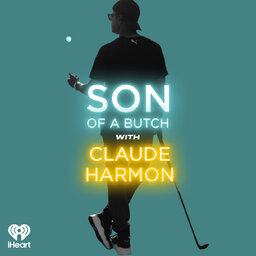Jim Crane
Jim Crane is not only the owner and chairman of the Houston Astros, but also of the Floridian Golf Club… technically making him Claude’s boss. He joins his friend of many years to discuss building a championship franchise, winning the World Series, similarities between sports and business and how he acquired a golf course. Plus Jim shares his love for the game and how his start as a young caddy led to him taking hold of the Houston Open in 2019, eventually moving it back to Memorial Park.
Thanks to our partner For Wellness. Formulated by pro golfer Phil Mickelson and elite performance coach Dave Phillips - The Good Stuff stimulates metabolism, increases focus, supports skin and joint health, and reduces the coffee jitters. For a limited time, Son of a Butch listeners can use code CH3 to get 20% off, free shipping and a free starter kit worth over $30 on their first purchase at www.forwellness.com/podcast.
Tell your friends about the new show and be sure to follow Claude to submit questions, enter giveaways and keep up with the latest Son of a Butch updates on Instagram at @ClaudeHarmon3.
Son of a Butch is produced in partnership with Wasserman. The views and opinions expressed by guests interviewed on the Podcast, including all program participants and guests, are solely their own current opinions regarding events and are based on their own perspective and opinion. The views and opinions expressed do not reflect the views or opinions of Claude Harmon, Wasserman, or the companies with which any program participants/interviewees are, or may be, affiliated.
 Son of a Butch with Claude Harmon
Son of a Butch with Claude Harmon


